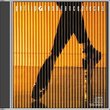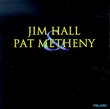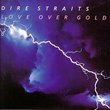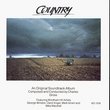| All Artists: Philip Glass, Vladimir Martynov, Gidon Kremer, Eri Klas, Kremerata Baltica Title: Silencio Members Wishing: 5 Total Copies: 0 Label: Nonesuch Original Release Date: 1/1/2000 Re-Release Date: 10/10/2000 Genres: International Music, Classical Styles: Latin Music, Tango, Chamber Music, Forms & Genres, Concertos, Instruments, Strings, Symphonies Number of Discs: 1 SwapaCD Credits: 1 UPC: 075597958225 |
Search - Philip Glass, Vladimir Martynov, Gidon Kremer :: Silencio
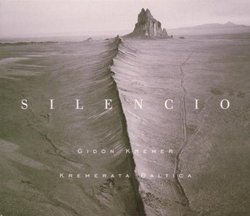 | Philip Glass, Vladimir Martynov, Gidon Kremer Silencio Genres: International Music, Classical
Violinist Gidon Kremer and his ensemble, Kremerata Baltica, have tackled repertoire that ranges from Baroque to contemporary, but they seem to shine on the newer stuff. The group has an obvious ear for the music of the Bal... more » |
Larger Image |
CD DetailsSynopsis
Amazon.com Violinist Gidon Kremer and his ensemble, Kremerata Baltica, have tackled repertoire that ranges from Baroque to contemporary, but they seem to shine on the newer stuff. The group has an obvious ear for the music of the Baltic region, and Kremer's icy precision and passionate playing are tailor-made for the modern masters. On Silencio, Kremer delivers another stunning recording, this one featuring meditative music by a trio of composing mavericks: Arvo Pärt, Philip Glass, and Vladimir Martynov. Martynov may be the least-known of the three, but his work marks the disc's highlight composition, "Come In!" The moving piece for violin and orchestra--which features plenty of Romantic, lyrical playing (and the occasional sound of a door knocking)--is mystical but also tender and sweet. A string orchestra arrangement of Glass's String Quartet No. 2 ("Company") is almost as intense as the original played by Kronos. A short Pärt world premiere rounds out this disc: "Darf Ich" is a glorious piece for violin and orchestra reminiscent of Pärt's sublime "Summa". This is a gorgeous disc you'll get lost in; another gem from Kremer. --Jason Verlinde Similarly Requested CDs
|
CD ReviewsSilencio is Superb! Sean Ivory | Grand Rapids, MI USA | 11/05/2000 (5 out of 5 stars) "Gidon Kremer and Kremerata Baltica deliver another excellent recording in "Silencio", on the Nonesuch label. Featuring music of three twentieth century composers, this CD contains performances which are moving and dramatic.Arvo Part's "Tabula Rasa" gets its most spacious recording yet on disc. The first movement, "Ludus", is performed with long pauses of silence between the dramatic utterances of strings and prepared piano. At 10:21, this is longer than any of the other three performances I own of this piece. The second movement, "Silentium", times at 18:24, including about a half-minute of recorded silence at the end of the movement. This is over five minutes longer than Neeme Jarvi's fine recording for Deutsche Grammophon. But length alone is not the measure of the caliber of this performance - orchestra and soloists give wonderful, broad performances, letting this great work breathe calmly and fully.The four short movements of "Company" by Philip Glass are rich with color and rhythmic energy. Fans of Richard Einhorn's "Voices of Light" will enjoy this brief work."Come In" by Vladimir Martynov was a revelation. I found a single reference to this composer on the web - it mentioned stylistic similarities with Arvo Part and an output of predominantly sacred vocal music. "Come In" is a meditation on a hymn-like tune; the tune is restated in each of the six movements with slight changes in structure. Each restatement is followed by a variation for two violin soloists. The music is sweet, romantic without becoming sickening, and gives the effect of joyful anticipation frozen in sound. You will not want this piece to end, and when it does you will have to supply the closure. Whether or not the door is opened will be for you to decide.The program concludes with a premiere recording of "Darf ich..." by Arvo Part. It shares harmonic similarities with "Kanon Pokajanen" and is once again superbly performed by Kremer and the Kremerata.This disc goes on my short list of favorite recordings. You won't be disappointed!" A minimalist delight. Vargiu Riccardo James | Bologna, Italy | 02/17/2001 (5 out of 5 stars) "First of all, why silence? And how?After all, one has to agree with John Cage when he points out that "There is no such thing as an empty space or an empty time. There is always something to see, something to hear. In fact, try as we may to make a silence, we cannot."What then does it mean to call an album "Silencio"?I think what it means is that the music in this album tries not to communicate something to its listener, but rather aims at helping one communicate with one's Self. This lack of intentional outward interaction, and the parallel promotion of introspection, I think, is intended to be thought of as a silence. Indeed, the emotional landscape it allows us to observe is, perhaps, the closest thing to silence, for it is a still and timeless picture, void of any matter, absorbed in a heartbeat alone.Technically this album is superb, with Gidon Kremer and his disciples proving to be, as always, up to the highest of expectations. The prepared piano in Arvo Pärt's Tabula Rasa deserves praise as well - I have never heard the piano sound so beautiful, evocative and majestic at once. As for Arvo Pärt, Philip Glass and Vladimir Martynov, they are, of course, a handsome lot to be found combined in one CD, with 68 minutes of music at a reasonable price by Nonesuch's standards. The nature of these composers, however, is what makes this album a product that not everyone is likely to care for. I feel quite certain that anyone who likes minimalist music - in the style of Gorecki or Kancheli, for instance - will find this album enticing. On the contrary, I recommend those who believe simplicity to be a symptom of stupidity to spend their money in a different way, for the music in this album is indeed a minimalist delight." Easy & not-easy, but all profound, moving & rewarding Mark K. Reed | San Antonio, TX United States | 07/02/2001 (5 out of 5 stars) "A fascinating combination of "modern" works to appreciate on this disc. All quite different, powerful juxtaposition of styles and moods. Tabula Rasa, the "lead-off" composition by Arvo Part, packs stunning intensity of a dark, melancholy sort in Part's minimalist, yet melodic vein. Next is Glass's "Company" for string orchestra. Pardon my simple mind, but I really do enjoy the regular/irregular pulsing, throbbing undercurrent of his works. The style is highly characteristic, yet, within that signature framework, he pulls in just enough complexity and variation in my opinion to make this highly worthwhile fare. Then, "Come In" by Martynov. What can I say, this is easy listening, but a real deep "easy" at that. Positively brought a lump to my throat and then some! Tell you the truth, I was so drained after these first three pieces, that I had to take a break before the final item, Darf Ich by Part. Listen again & again when you're in a bit of a heavy mood that deserves musical concordance. The performance/performers work these treasures to the hilt. I'd pare my CD collection from 1200 down to 12, and "Silencio" would remain."
|

 Track Listings (13) - Disc #1
Track Listings (13) - Disc #1


